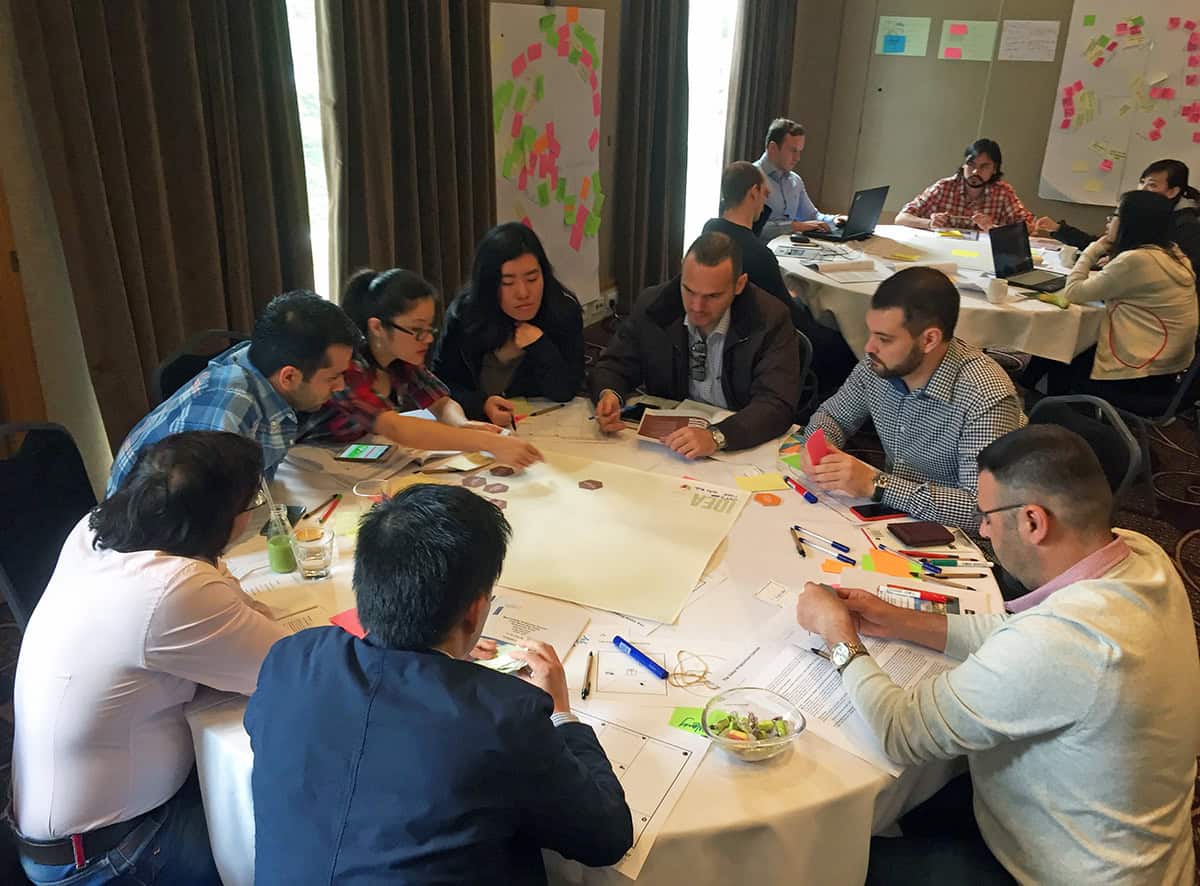Got a great idea for a new technology but don’t know how to turn it into a product? Want a career in industry but find the world of business confusing? Robert Phillips shares his key tips and tricks for developing entrepreneurship skills

What does an idea need to change the world? Physics drives scientific advancements in healthcare, green energy, sustainable materials and many other applications. However, to bridge the gap between research and real-world applications, physicists need to be equipped with entrepreneurship skills.
Many students dream of using their knowledge and passion for physics to change the world, but when it comes to developing your own product, it can be hard to know where to start. That’s where my job comes in – I have been teaching scientists and engineers entrepreneurship for more than 20 years.
Several of the world’s most successful companies, including Sony, Texas Instruments, Intel and Tesla Motors, were founded by physicists, and there are many contemporary examples too. For example, Unitary, an AI company that identifies misinformation and deepfakes, was founded by Sasha Haco, who has a PhD in theoretical physics. In materials science, Aruna Zhuma is the co-founder of Global Graphene Group, which manufactures single layers of graphene oxide for use in electronics. Zhuma has nearly 500 patents, the second largest number of any inventor in the field.
In the last decade quantum technology, which encompasses computing, sensing and communications, has spawned hundreds of start-ups, often spun out from university research. This includes cybersecurity firm ID Quantique, super sensitive detectors from Single Quantum, and quantum computing from D-Wave. Overall, about 8–9% of students in the UK start businesses straight after they graduate, with just over half (58%) of these graduate entrepreneurs founding firms in their subject area.
However, even if you aren’t planning to set up your own business, entrepreneurship skills will be important no matter what you do with your degree. If you work in industry you will need to spot trends, understand customers’ needs and contribute to products and services. In universities, promotion often requires candidates to demonstrate “knowledge transfer”, which means working with partners outside academia.
Taking your ideas to the next level
The first step of kick-starting your entrepreneurship journey is to evaluate your existing experience and goals. Do you already have an idea that you want to take forward, or just want to develop skills that will broaden your career options?
If you’re exploring the possibilities of entrepreneurship you should look for curricular modules at your university. These are normally tailored to those with no previous experience and cover topics such as opportunity spotting, market research, basic finance, team building and intellectual property. In addition, in the UK at least, many postgraduate centres for doctoral training (CDTs) now offer modules in business and entrepreneurship as part of their training programmes. These courses sometimes give students the opportunity to take part in live company projects, which are a great way to gain skills.
You should also look out for extracurricular opportunities, from speaker events and workshops to more intensive bootcamps, competitions and start-up weekends. There is no mark or grade for these events, so they allow students to take risks and experiment.
Like any kind of research, commercializing physics requires resources such as equipment and laboratory space. For early-stage founders, access to business incubators – organizations that provide shared facilities – is invaluable. You would use an incubator at a relatively early stage to finalize your product, and they can be found in many universities.
Accelerator programmes, which aim to fast-track your idea once you have a product ready and usually run for a defined length of time, can also be beneficial. For example, the University of Southampton has the Future Worlds Programme based in the physical sciences faculty. Outside academia, the European Space Agency has incubators for space technology ideas at locations throughout Europe, and the Institute of Physics also has workspace and an accelerator programme for recently graduated physicists and especially welcomes quantum technology businesses. The Science and Technology Facilities Council (STFC) CERN Business Incubation Centre focuses on high-energy physics ideas and grants access to equipment that would be otherwise unaffordable for a new start-up.
More accelerator programmes supporting physics ideas include Duality, which is a Chicago-based 12-month accelerator programme for quantum ideas; Quantum Delta NL, based in the Netherlands, which provides programmes and shared facilities for quantum research; and Techstars Industries of the Future, which has locations worldwide.
Securing your future
It’s the multimillion-pound deals that make headlines but to get to that stage you will need to gain investors’ confidence, securing smaller funds to take your idea forward step-by-step. This could be used to protect your intellectual property with a patent, make a prototype or road test your technology.
Since early-stage businesses are high risk, this money is likely to come from grants and awards, with commercial investors such as venture capital or banks holding back until they see the idea can succeed. Funding can come from government agencies like the STFC in the UK, or US government scheme America’s Seed Fund. These grants are for encouraging innovation, applied research and for finding disruptive new technology, and no return is expected. Early-stage commercial funding might come from organizations such as Seedcamp, and some accelerator programmes offer funding, or at least organize a “demo day” on completion where you can showcase your venture to potential investors.

While you’re a student, you can take advantage of the venture competitions that run at many universities, where students pitch an idea to a panel of judges. The prizes can be significant, ranging from £10k to £100k, and often come with extra support such as lab space, mentoring and help filing patents. Some of these programmes are physics-specific, for example the Eli and Britt Harari Enterprise Award at the University of Manchester, which is sponsored by physics graduate Eli Harari (founder of SanDisc) awards funding for graphene-related ideas.
Finally, remember that physics innovations don’t always happen in the lab. Theoretical physicist Stephen Wolfram founded Wolfram Research in 1988, which makes computational technology including the answer engine Wolfram Alpha.
Making the grade
There are many examples of students and recent graduates making a success from entrepreneurship. Wai Lau is a Manchester physics graduate who also has a master’s of enterprise degree. He started a business focused on digital energy management, identifying energy waste, while learning about entrepreneurship. His business Cloud Enterprise has now branched out to a wider range of digital products and services.
Computational physics graduate Gregory Mead at Imperial College London started Musicmetric, which uses complex data analytics to keep track of and rank music artists and is used by music labels and artists. He was able to get funding from Imperial Innovations after making a prototype and Musicmetric was eventually bought by Apple.
AssestCool Thermal Metaphotonics technology cools overhead power lines reducing power losses using novel coatings. It entered the Venture Further competition at the University of Manchester and has now had a £2.25m investment from Gritstone Capital.
Entrepreneurship skills are being increasingly recognized as necessary for physics graduates. In the UK, the IOP Degree Accreditation Framework, the standard for physics degrees, expects students to have “business awareness, intellectual property, digital media and entrepreneurship skills”.
Thinking about taking the leap into business can be daunting, but university is the ideal time to think about entrepreneurship. You have nothing to lose and plenty of support available.



